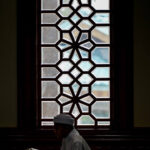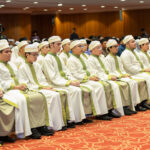 The evolution of religious services has played a pivotal role in shaping the history of Brunei Darussalam, fostering a deep-rooted appreciation for Islamic teachings throughout the nation’s journey. Spearheaded by the Ministry of Religious Affairs (MoRA) in collaboration with the Ministry of Education (MoE), efforts have been concentrated on crafting a curriculum tailored to educate Muslim youth on Islamic principles.
The evolution of religious services has played a pivotal role in shaping the history of Brunei Darussalam, fostering a deep-rooted appreciation for Islamic teachings throughout the nation’s journey. Spearheaded by the Ministry of Religious Affairs (MoRA) in collaboration with the Ministry of Education (MoE), efforts have been concentrated on crafting a curriculum tailored to educate Muslim youth on Islamic principles.
The implementation of the Compulsory Religious Education Order in 2012 underscores the nation’s commitment to providing comprehensive Islamic education. This mandate requires Muslim children aged seven to 15 to attend religious schools, highlighting the significance placed on Islamic knowledge from a young age.
Brunei boasts approximately 150 religious schools, spanning from preschool to primary levels, supplemented by three private institutions: International School Brunei, Jerudong International School, and Yayasan Sultan Haji Hassanal Bolkiah School. The curriculum encompasses a spectrum of subjects including Al-Quran, Tauhid, Fiqh, and Islamic History, tailored to each educational level.
Arabic schools in Brunei adhere to national and Ma’had Buhuth al-Islamiah curriculums, designed to equip students with 21st-Century skills. The seven Arabic schools in Brunei cater to male students from Year 5 to preuniversity level, with female education offered until Year 11.
 MoRA extends its educational outreach to adults through religious classes, covering topics such as Tauhid, Fiqh, and Al-Quran. These classes follow a structured syllabus aligned with primary-level religious education standards, with advanced courses available for further learning. Additionally, the ministry offers specialised education through Uniformed Training Centres, Treatment Centres, Rehabilitation and Guidance Centres, and Special Needs Centres, catering to diverse educational needs across the community.
MoRA extends its educational outreach to adults through religious classes, covering topics such as Tauhid, Fiqh, and Al-Quran. These classes follow a structured syllabus aligned with primary-level religious education standards, with advanced courses available for further learning. Additionally, the ministry offers specialised education through Uniformed Training Centres, Treatment Centres, Rehabilitation and Guidance Centres, and Special Needs Centres, catering to diverse educational needs across the community.
Towards the end of 2023, MoRA and MoE jointly announced the integration of religious subjects into the general education system starting November 1. This integration applies to pre-school to Primary 3 students at religious schools, who will continue their religious education within their primary schools. Primary 4 to Primary 6 religious school students will maintain their regular curriculum.
Integrated religious subjects are taught for one hour over two periods daily, with adjusted school hours from 7.30am to noon and 1pm to 3pm. This change aims to improve students’ well-being by reducing workload and enhancing school-life balance and mental health, ultimately enhancing learning efficiency.
